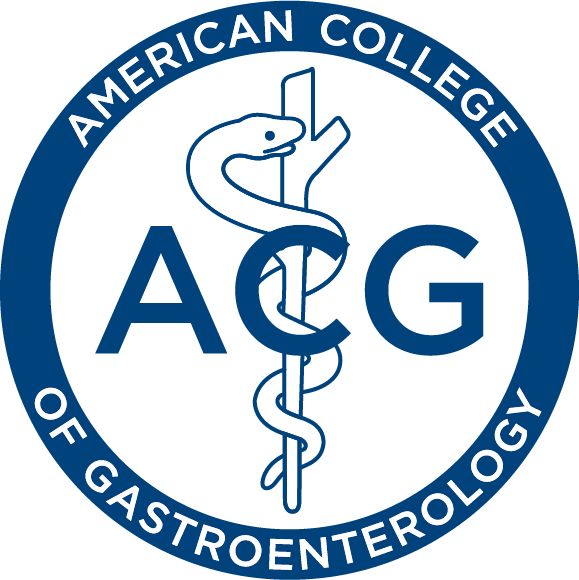FOR IMMEDIATE RELEASE September 6, 2013
Newswise — Bethesda, Maryland (September 6, 2013) – The GI Quality Improvement Consortium (GIQuIC) announces the expansion of its endoscopic quality registry to include upper GI endoscopy and related quality measures. GIQuIC, a quality benchmarking registry co-sponsored by the American College of Gastroenterology and the American Society for Gastrointestinal Endoscopy, provides reliable and relevant measures of endoscopic quality that give physicians meaningful information they can use to improve patient care.
With the addition of upper GI endoscopy (EGD), the GIQuIC registry now includes the second most common endoscopic procedure in the United States. GIQuIC responded to the desire of endoscopists to expand their ability to track performance and benchmark quality to meet the demand for more detailed data on patient outcomes.
Colonoscopy was the first procedure captured and tracked within GIQuIC and new data fields within colonoscopy have also been added, including serrated lesions, sedation type and patient insurance.
More than 1,300 physicians contribute data to the registry from more than 150 endoscopy centers. Currently, the registry includes data on more than 330,000 colonoscopies. Since October 2012, the data has tripled and continues to grow exponentially as more gastroenterology practices adopt GIQuIC in their endoscopy facilities as a mechanism to improve the overall quality of care provided to patients and to meet government guidelines regarding participation in a registry.
“GIQuIC is a business solution for efficiently managing data, streamlining operations and truly transforming gastroenterology practice,” commented GIQuIC President Dr. Irving M. Pike. “Practices currently participating in GIQuIC are using it as a way to market their services to patients, demonstrating to patients their commitment to quality care as well as how they rate per national benchmarks,” he added.
The addition of EGDs results in the following new quality measures as part of the registry:
-Appropriate specimen acquisition in Barrett’s esophagus-Appropriate management of new diagnoses of bleeding esophageal varices-Appropriate endoscopic therapy for stigmata of peptic ulcer disease bleeding-Appropriate anticoagulation management-Appropriate antibiotic prophylaxis-H. pylori status
To learn more about how to enroll to participate in this registry, visit the GIQuIC website, www.giquic.org.
About GIQuICThe GI Quality Improvement Consortium, Ltd. ("GIQuIC") is an educational and scientific 501(c)(3) organization established by gastroenterologists, physicians specializing in digestive disorders. GIQuIC is a joint initiative of the American College of Gastroenterology (ACG) and the American Society for Gastrointestinal Endoscopy (ASGE). Gastroenterologists treat patients for disorders and conditions of the digestive tract. GIQuIC has developed and utilizes various measurements of the endoscopic techniques of practicing gastroenterologists, a process referred to as benchmarking. This national benchmarking project began by measuring common endoscopic procedures employed by gastroenterologists. Endoscopy is a minimally invasive medical procedure that is used to assess the digestive system organs by inserting a tube orally into a patient's stomach or rectally into the patient’s colon. The physician founders of the GIQuIC believe that the scientific measurement of the quality of endoscopic procedures will improve the quality of the medical care being given to patients throughout the United States and abroad, and ultimately will improve the quality of public health. For more information about the GIQuIC registry, visit www.giquic.org.
About the American College of GastroenterologyFounded in 1932, the American College of Gastroenterology (ACG) is an organization with an international membership of more than 12,000 individuals from 80 countries. The College is committed to serving the clinically oriented digestive disease specialist through its emphasis on scholarly practice, teaching and research. The mission of the College is to serve the evolving needs of physicians in the delivery of high quality, scientifically sound, humanistic, ethical, and cost-effective health care to gastroenterology patients. For more information, visit www.gi.org.
About the American Society for Gastrointestinal EndoscopySince its founding in 1941, the American Society for Gastrointestinal Endoscopy (ASGE) has been dedicated to advancing patient care and digestive health by promoting excellence and innovation in gastrointestinal endoscopy. ASGE, with more than 12,000 members worldwide, promotes the highest standards for endoscopic training and practice, fosters endoscopic research, recognizes distinguished contributions to endoscopy, and is the foremost resource for endoscopic education. Visit www.asge.org and www.screen4coloncancer.org for more information and to find a qualified doctor in your area.# # #
